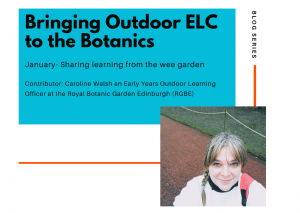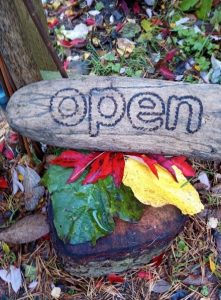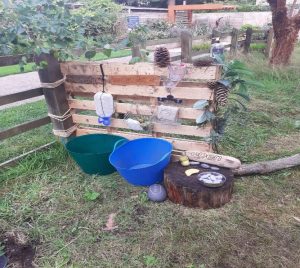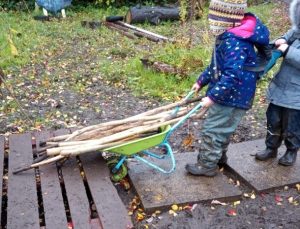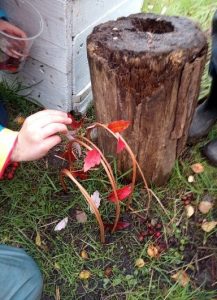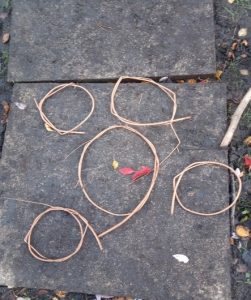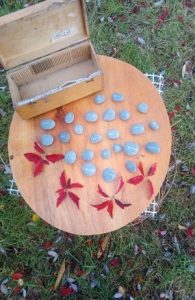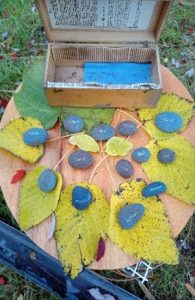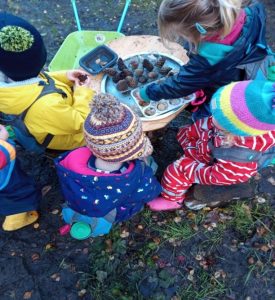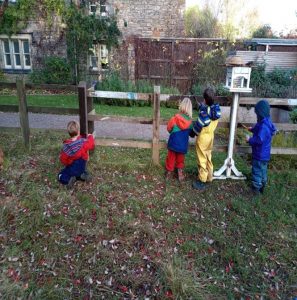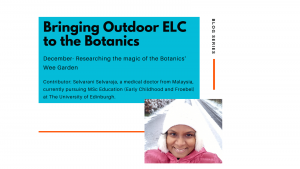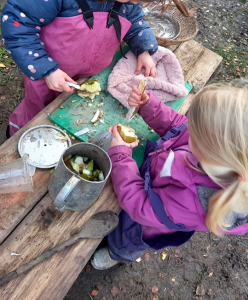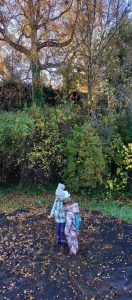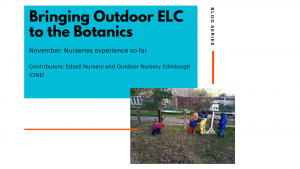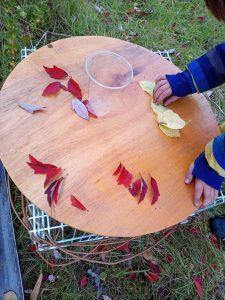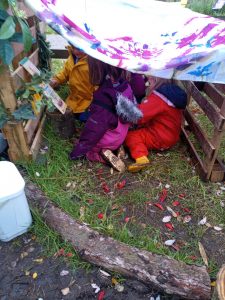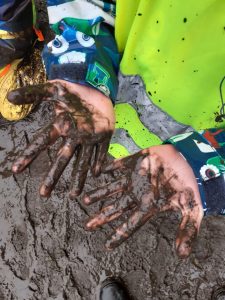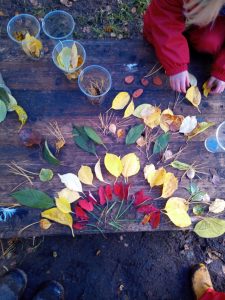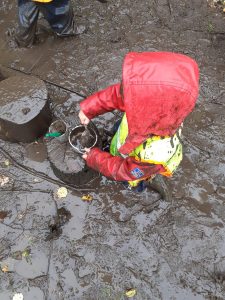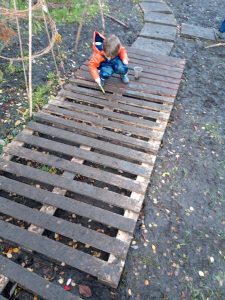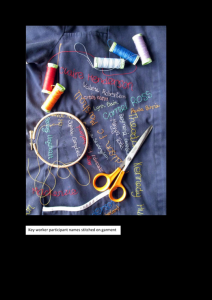Funding to support community-led local development
120 not-for-profit community groups are to benefit from £1.8 million funding to trial new and innovative ways to address local challenges and embrace local opportunities.
The Rural Communities ‘Ideas into Action’ Fund opened to applications from Monday 13 September to Friday 8 October, and is part of a £3 million commitment by Scottish Government to trial new approaches to Community led local development (CLLD) before March 2022. The successful projects will test new approaches to CLLD from a broad range of themes including mental health & wellbeing, net zero and climate action ambitions and community collaboration.
The original £1.5 million fund was topped up by £300,000 of capital funding to support successful climate action specific projects, and is being delivered in partnership with Inspiring Scotland. The outputs and learning will help inform development of a future CLLD fund for 2022-23 worth £11.6 Million.
The fund is now closed for applications.
Read more about the funded projects.
Additional funding for sustainable islands
Additional funding has been allocated to local island projects.
Projects delivering strong community climate themes across some of Scotland’s islands will receive a share of almost £600,000 to support sustainability and provide more green travel options.
The projects are delivered through the Scottish Government’s Island Communities Fund, which provides investment for community-led projects that support employment, community resilience and contribute to Scotland’s just transition to net zero and climate resilient living on islands.
This second payment tranche will see funding provided to six additional projects. A second instalment of funding will also be provided to one of the projects awarded money in the first tranche.
The Fund is managed by Inspiring Scotland on behalf of the Scottish Government and the 35 successful projects span across 55 islands.
Islands Secretary Mairi Gougeon said:
“Last summer, we received more than 180 applications for this fund which shows us that our islands are focussed on making Scotland a greener and fairer place. They will play an important role in helping us meet our ambitious climate change targets.
“The additional funding will enable even more projects to help people, businesses and communities on our islands thrive.”
Magnus Holbourn of Foula Wool has received two funding instalments through the fund. Speaking about the importance of the fund to his business, he said:
“This is a genuine transformational opportunity for our island business, we have worked extremely hard over a number of years building up a customer base and establishing our Foula Wool product range. To now be able to bring all of the physical processing work that goes into creating the product back to the island, retaining its full value in the local economy is simply a dream come true.
“The fact that all of the yarn processing machines will be running on low carbon renewable electricity generated by Foula’s own off-grid network not only increases overall island resilience but also allows us to significantly lower our business carbon footprint. We are really passionate about the environment and it makes us so happy to know that we are going to be able to produce our product in a responsible way, supporting our community and our unique sheep at the same time.”
Inspiring Scotland CEO Celia Tennant said:
“Inspiring Scotland is delighted to work with the Scottish Government to deliver this increase in investment to the Island Communities Fund. Support for these seven organisations will help island communities from Foula to Arran thrive, retain and grow population, and move towards a net zero future more quickly.”
Background
The total ICF grant commitment delivered by tranche 1 and 2 is £2,586,000.
The initial £2 million committed in tranche 1 has come from the £9.5 million committed to the Islands Programme for 2021/22 and the £586,000 of additional funds is made up of £526,000 transferred from the Sustainable Action Fund, which is delivered by the Domestic Climate Change Division and £60,000 in support of population focused projects to deliver on our National Islands Plan commitment to support the repopulation of rural and island communities.
Tranche 2 funding also includes £9,536.67 that has been reallocated from Tranche 1.
Projects should be completed by 31 March 2022.
Read more about the funded projects.
Read more about the Island Communities Fund.
Creating resilient and sustainable islands.
Thrive Outdoors Blog Series: Sharing learning from the Wee Garden
This month for the fifth instalment of our Botanics Blog series we hear from Caroline Walsh an Early Years Outdoor Learning Officer at the Royal Botanic Garden Edinburgh. Caroline shares her experience of the project so far and the key learnings along the way!
I came into this exciting research project full of ideas. I had a vision in my head which I have been lucky enough to make a reality in a very short space of time. The brilliant integrated team, working together and having the same aim, have ensured our shared vision became reality. One month after I started, the identified space was created and named ‘Our Wee Garden’.
The two nurseries involved, ONE (Outdoor Nursery Edinburgh) and Edzell Nursery, are very different. One of the nurseries come for a whole day session every Wednesday and the other comes for two, two-hour sessions two days a week. The resources are all open ended to enable free flow, child led and imaginative play.
My vision is to share good practice and instil a love of being outdoors to the children, which will,hopefullylast through their lifetime. There is a memorial bench in RBGE with a quote which I love; it says “to plant a garden is to believe in tomorrow”.
My own love of outdoors comes from my late father who took us out as a familyevery weekend whether rain, hail or shine, when the rain came, we built a shelter. As Billy Connelly says, “there is no such thing as bad weather, only the wrong clothes.”
Sometimes I create experiences for the children using subtle provocations which result in amazing moments. For example, the rangoli for Diwali (pictured above) inspired a fantastic session where all the children were engaged in collecting various coloured leaves, and creating pictures of ‘mum,’ ‘a rainbow’ and sparking conversations about colour, the season, the changes to the environment around us. The children were asked if they wanted to go out into the RBGE looking for more leaves, but everyone was so engaged in play, it was a lovely session and a utopic moment to see level 5 (Leuven scale)[i] in practice.
Finding Solutions
There have been issues along the way, but there have also been solutions. An example of this is the spa tap; a fantastic invention to save water use and wash hands where no running water is available. Under the current Covid restrictions the children wash their hands when they come to the garden and when they leave. The two nurseries have vastly different approaches to this. The issue being the site is very wet already, the ground has drainage issues, and the water is sourced from a small sink every morning. So I went on a course where I learned solutions and good practice with other practitioners .I tried it during my first session back, what had been challenging was now a simple hand washing experience. Sometimes we need to step outside and look in at our practice to find solutions.
The mud has been another learning curve; the site is very boggy and wet. But this too brings so much learning. Like when we first started using the site, there were a lot of frogs around, so the children looked for frogs and we looked at books, learning about their life cycle, sang songs five little speckled frogs which often still is requested.
The challenges have been making sure there is a dry space. At the wettest, even inside the tent was extremely muddy! But we looked to solve the problem by raising the ground using pallets.
A combination of pallets and slabs have created a pathway in Our Wee Garden and the children have been using this in their imaginative play as a train track, using the wheelbarrows back and forward on the track and the sticks at the side of the track as the levers; wonderful!
Shared Learning
I thoroughly enjoy my job and being part of this experience has been a real privilege. Each session I am getting to know the children (and them me) better and observing them and how they use the resources inspires me. To give the children ownership of the space, we created woven willow circles and linked them together to form an arch when you enter and exit Our wee Garden. The children can now independently create woven willow circles.
To avoid cross contamination and keep things simple, we have the rule ‘if you make it at Our Wee Garden then it stays at Our Wee Garden’ and you can choose where it goes. For example threading, and willow circles. Also if you find a leaf or twig outside of the RBGE you cannot bring it in to avoid cross contamination of plant biomatter. This rule is also an important learning experience for the children as they learn about how to take care of the plants in the National Collection – the main Botanical Gardens.
The staff from both nurseries have shared that they like my ideas and have purchased willow for the children to use back in their nursery and they have also taken back other ideas such as threading and shells, fabric scraps and loose parts play materials. A member of staff commented that every week she gets a new idea to try; this was lovely feedback to receive.
After a story about fairy houses the children felt inspired to create their own, some in groups and some independently, the children add to them and look for signs of fairies. Our Wee Garden does feel magical, there is a great sense of calm and much as I hoped that everyone would feel welcome and want to come play so far that has been my experience. The children engage well and have formed an attachment to the space and myself; some don’t want to leave! It is so rewarding when a child who does not usually engage chooses to do so in Our Wee Garden, where they feel safe, cared for and nurtured.
Each session by the welcome pebble, I have the day, date and month, (subtle literacy) Each child has a name pebble to find and pop in the repurposed seed box at the start of each session, The children help their friends find their name too. When the pilot finishes, I plan to give each child their name pebble to keep.
What I will take away from this experience is anything is possible; we cannot climb trees or have fires there are boundaries that you wouldn’t have in any other green space, but with the right team and a shared vision it IS possible to have an outdoor nursery in the Royal Botanic Gardens Edinburgh!
Stay tuned as we continue this blog series sharing the next part of this exciting journey on Friday the 18th of February!
Enjoy this blog? Then keep an eye for the next blog in this series where both the up’s and downs of piloting a new outdoor ELC in a botanical garden will be shared as well as the key learnings along the way!
Join in the conversation or just chat with us at:
- Facebook @ThriveOutdoorsScot
- Twitter @Thrive_Outdoors
- Instagram @thrive_outdoors
- or by email to amy@inspiringscotland.org.uk
Promoting healthy and resilient island communities
People living on Scottish islands will benefit from community-led wellness initiatives designed to support them to live healthier lifestyles as funding has now been allocated for the Scottish Government’s Healthy Islands Fund.
The Healthy Islands Fund will help to deliver these initiatives with just over £1.3 million of Scottish Government funding from the wider £30 million Islands Programme.
The fund is managed by Inspiring Scotland with 56 projects spanning across 35 islands. Projects focus on building local capacity to increase well-being, foster connections and promote healthy and resilient islanders and communities – helping them to recover from the impact of the COVID-19 pandemic.
Islands Secretary Mairi Gougeon said:
“It’s important that local communities have initiatives that can promote participation and equality in physical activity, as we’ve outlined in our National Islands Plan. We need to ensure that these are locally-led and local community groups who are often best placed to provide these services on our islands.
“The projects that we are funding will help encourage people to live healthier lifestyles and improve their resilience. I’m so grateful to the groups for applying to help improve the lives of the people living across Scotland’s islands and I can’t wait to see them in action.”
Inspiring Scotland CEO Celia Tennant said:
“Inspiring Scotland is delighted to be the delivery partner for the Scottish Government’s Healthy Islands Fund which supports the aims and outcomes of the National Islands Plan and builds on the work of the Scottish Government’s Island Communities Fund. The 56 successful Healthy Island Fund Projects delivered on 35 islands will support our island communities to engage in healthy lifestyle choices and in turn support their physical and mental wellbeing.”
Further Information
- Read more about the Healthy Islands Fund
- Read more about the funded projects
Thrive Outdoors blog series: researching the magic of the Botanics’ Wee Garden
This month for the fourth instalment of our Botanics Blog we spoke with Selvarani Selvaraja, a medical doctor from Malaysia, currently pursuing MSc Education (Early Childhood and Froebel) at The University of Edinburgh. Selvarani has been involved in this project as part of the research team, led by Dr. Lynn McNair, Head of Cowgate Under Fives Centre in Edinburgh, Scotland, and a Lecturer in Early Childhood Practice and Froebel / Research Fellow at the University of Edinburgh. In this blog Selvaraja explains what she has observed from a research point of view on the Botanics outdoor nursery journey.
Bringing outdoor early childhood education to the Royal Botanic Gardens in Edinburgh has been an exciting journey thus far, observing young children engaging in nature has been both fulfilling and experiential. The evolving dynamics amongst children and adults in the Wee Garden (the Botanic Garden’s outdoor nursery space), is indeed intriguing. The benefits children reap through actively learning in nature is tremendous. This has become a greater priority as the issue of climate change looms ahead of us. Children engaging in nature creates an awareness of self in relationship with their surroundings. The right pedagogy, guiding young minds in a nurturing space, prepares them for the task ahead of them, learning to live harmoniously with every being on earth.
The nurturing space in this context is our Wee Garden. A green space nestled within the bustling city of Edinburgh, the Botanics brings people together to foster inclusive communities. As such, community engagement is vital in building connections between people, plants and each other. Hence, providing an outdoor learning space for young children in the Botanical Gardens promotes inclusivity, recognises young minds as part of the community and nurtures the love for nature in them.
It offers a space for children to move freely, to run and to play, in their own time at their own pace, all within the Wee Garden site. Frolicking in the mud, finding fairies under the tree, making leaf necklaces, all in a space that they can call their own. The Botanical Gardens are no longer for ‘display’ purposes only but also for direct engagement with early childhood nature education, which can only be seen as a positive path towards inclusivity. As an example, on a cool autumn morning, a group of children were throwing dry leaves up in the air in the main garden space, and watched in glee as the leaves scattered down aided by the gust of wind. Visitors to RBGE, including an elderly couple observed in awe as the scene of play unfolded before their eyes. They were smiling and seemed to be enjoying the whole scenario of the children’s nature play as they continued their walk. Therefore, we can see that the role of Botanics as a nurturing nature space to provide young minds a learning opportunity, can also promote the visibility and inclusivity of children; re-affirming their role as a part of a larger community.
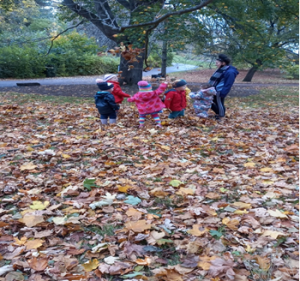 Perception and belief of a holistic pedagogical practice by the adults and educators in the outdoor space, plays a vital role in determining the quality of nature play. A Froebelian pedagogical approach towards outdoor learning, places utmost importance on ‘freedom with guidance’ based interaction with the children. By this we mean, enabling the child’s individual enquiry while gently expanding their horizons.
Perception and belief of a holistic pedagogical practice by the adults and educators in the outdoor space, plays a vital role in determining the quality of nature play. A Froebelian pedagogical approach towards outdoor learning, places utmost importance on ‘freedom with guidance’ based interaction with the children. By this we mean, enabling the child’s individual enquiry while gently expanding their horizons.
Engagement with nature through the Frobelian lens has always honoured direct experience and a sense of ‘being’ in the surroundings. Children learn in nature rather than simpy about nature. A child needs opportunities to experiment, explore and discover with sensitive, attuned adults who support children but do not take over their play. Children choose where they want to go and for how long, away from constant adult interruption. Respect is given to free play motivated by the children. This differs greatly from the segmented curriculum of dividing learning into subjects, heavily influenced by adult-led instructions. A Froebelian approach enables children to make connections within their learning.
In the Wee Garden, most children find their own way to invest their time in play. For instance, during one of the observation sessions, two children aged 4 and 5, named O and L (for narration purposes), started cutting apples (that had fallen into the garden overnight) with razor shells. They put the cut bits into a pot in the mud kitchen and pretended to cook apple soup. They were engaging in this activity for more than 15 minutes of uninterrupted free play whilst having a conversation on what the soup was going to taste like. At this point, a well-meaning adult decided to intervene and invited the children to make a leaf boat. O and L just looked up briefly from the cutting chore and shrugged their shoulders softly, indicating their disinterest in the leaf boat activity and continued their apple cutting task for another 15 minutes. This was a groundbreaking moment of realisation for the adults where the children created their own learning environment through uninterrupted free play; reminding us that the role of adult should be attuned to the children’s needs, offering guidance where necessary, otherwise observing from afar.
Image: making apple soup
This Frobelian quote,
‘It seems to me that such continuous guidance on the part of the adult must take away the spontaneity in childish play’ (Froebel in Liebschner, 2001:68) best describes the holistic approach of the Froebelian pedagogy, which has become more relevant in influencing the perception and belief of the adults in the outdoor learning space.
Through the lens of Froebelian pedagogy we can provide an enriching learning experience for children by enabling their unity and connection to nature, which opens up tremendous benefits in children’s development.
Bringing outdoor early childhood education into the Botanics is a journey of discovery, one that develops through a nurturing space, such as our ‘Wee Garden’. The research so far has demonstrated that the pedagogy and practice of the adults in the space can expand, or limit, the imagination and creativity of the learning taking place there. We must strive to create an outdoor learning and play environment in which children are the leaders of their space, in turn fostering a deeper connection with nature in years to come.
Further reading
- University of Edinburgh Froebelian study: Froebel in Childhood Practice
- MSc Education, Early Childhood & Froebel
- The Froebel Trust: https://www.froebel.org.uk/
- Read last month’s blog
Stay tuned as we continue this blog series sharing the next part of this exciting journey on Friday the 21st of January!
Enjoy this blog? Then keep an eye for the next blog in this series where both the up’s and downs of piloting a new outdoor ELC in a botanical garden will be shared as well as the key learnings along the way!
Join in the conversation or just chat with us at:
- Facebook @ThriveOutdoorsScot
- Twitter @Thrive_Outdoors
- Instagram @thrive_outdoors
- or by email to amy@inspiringscotland.org.uk
Celebrating 5 years of intandem
Inspiring Scotland’s Head of Development and Partnership, Julia Abel, reflects upon the impact of intandem mentoring as the programme celebrates its fifth birthday.
We all need consistent, trusting relationships. For young people who have care experience, these relationships can sometimes be lacking. The long-term presence of a trusted, supportive adult can make all the difference to the trajectory of their lives.
We’re celebrating five years of intandem, Scotland’s national mentoring programme. Funded by the Scottish Government and delivered by Inspiring Scotland, the programme connects young people and volunteer mentors to establish meaningful, supportive and long-lasting relationships.
Since 2016, intandem has supported young people who are looked after at home on a Compulsory Supervision Order (CSO). While being in care is often linked to social disadvantage, children and young people looked after at home have the poorest outcomes of all young people in Scotland, through no fault of their own. intandem supports these young people to develop positive relationships with a trusted adult role-model. Weekly mentoring provides space for these relationships to flourish.
intandem is a community-based mentoring programme, with meetings taking place outside of the school environment. Over the last five years, intandem has trained 733 volunteers and coordinated 450 matches. With over 3,500 children and young people in Scotland currently living at home under a CSO, it is vital that we continue to invest in them with mentoring support, so these children don’t fall through the cracks.
We know intandem works. The average match lasts 17 months, providing young people with stability and long-term support. Mentored young people consistently report a range of positive outcomes, including increased self-esteem (62%), increased community engagement (64%) and improved friendships (64%). With Covid-19 prompting an increase in feelings of anxiety and isolation, it’s more crucial than ever that all young people have the opportunity to form meaningful relationships.
With intandem, inspiring Scotland is committed to helping Scotland #KeepThePromise, a pledge to embed the voices of care-experienced young people when making decisions about the Scottish care system. As part of this commitment, intandem facilitates a Young Person’s Forum, where care-experienced young people can speak on the issues closest to them. intandem staff are also currently working with a care-experienced individual, to help shape the work of intandem as we look to the future.
intandem is made possible by the commitment of its funder, Scottish Government. It also depends on the dedication of volunteers and the commitment of the programme’s twelve charity partners, who work tirelessly to coordinate matches across Scotland. These charities are committed to matching more young people with mentors, to ensure every young person has the opportunity to thrive.
intandem has a bold and ambitious vision – that Scotland’s children, young people and families can stay together to build and maintain positive, loving relationships. intandem is currently embedded in 19 Local Authorities and aspires to expand even further. By continuing to grow, intandem can help Scotland #KeepThePromise to all care-experienced infants, children, young people, adults and their families – that every child grows up loved, safe and respected, able to realise their full potential.
Thrive Outdoors Blog Series: Nurseries experience so far
This month for the third installment of our Botanics Blog we caught up with Edzell Nursery and Outdoor Nursery Edinburgh (ONE), the two nurseries involved in the project, to see how the experience has been so far.
Edzell Nursery is based within a church hall at Goldenacre very close to the Botanic Gardens. Being based in a church hall means they share the space with other users and are a ‘packaway’ nursery; although they do have access to outdoor space onsite.
In contrast, ONE is based on the southside of the city near Cameron Toll and daily use of local greenspace is a defining and integral part of their service.
Have you noticed a difference in how the children use the outdoor space, at the nursery, at home, at the Botanics? What have you noticed? Is the play richer?
ONE:
The children that attend our nursery are used to outdoor spaces. We are out exploring every day and I think that this has helped them to be able to engage with meaningful learning at the unique space of the Botanics rather than be overwhelmed of being in an outdoor environment.
Edzell:
Amongst the children, there is a greater awareness of nature, the small details and seasonal changes. They will talk about what they did in ‘The Wee Garden’, which is our dedicated space at the Botanics, in discussions back at Edzell or in conversations with adults and children who didn’t go to the Botanics that day.
They also make the distinction between the Wee Garden and other parts of the Botanics and this shows that they have an understanding of how to interact and respect the different spaces. The children are also more at ease outdoors, for example, they are now more aware of how to keep themselves dry and warm and will always pull their waterproofs over their wellies and even let their parents know why this is necessary.
Do you see a difference in the children’s confidence coming to the Botanics?
ONE:
Yes, although we usually spend lots of time outdoors, this is a different space with different experiences and expectations. The children have grown in confidence in what they can expect and what is expected of them. The difference between the spaces – the Wee Garden and the main publicly accessible Gardens – has also meant the children have developed an understanding and confidence in accessing different kinds of spaces.
Edzell:
Yes, absolutely. Children like routine and at the start, they didn’t know the route, nor what to expect at the Botanics. However now: they know the walk; their space at the Botanics; and they’re confident using this space and the resources. This confidence means they use the space differently each time whilst still returning to familiar activities. The children have built stamina and have become more resilient to the changes in weather. Often the walk, which can take up to 30 minutes, is as much a part of the experience as actually being at the Botanics and it’s sometimes what they speak most about at home. Also, they’re less bothered about being dirty and have gone from being somewhat hesitant about using the toilet tent to it just being part of the outdoor experience. This experience of being in the Botanics, is helping to build their resilience, their confidence to deal with change, and to think independently.
What are you enjoying about working with the Botanics in this new project? What are the barriers and challenges?
Edzell:
Being surrounded by nature is a big plus as we all love the outdoors and are enjoying incorporating it into the children’s daily routine. Unlike the children at ONE nursery, our children are somewhat new to this. It has been great to watch how they’ve adapted to their ‘Wee Garden’, the outdoor learning and experiences and how much they enjoy just rediscovering the space each time. Although the mud has been a big hit with the children who love to immerse themselves in it and enjoy the sensory experience, it has been one of the biggest challenges. It was expected the Botanics site would be muddy but the extent of the wetness could not have been foreseen! However, like everything it’s never about the situation but how you handle it and everyone involved coming together to react positively to the challenges means solutions are found and things keep working.
ONE:
It is just a wonderful opportunity for the children to experience the outdoors in a different type of setting and one where all the plants and trees are cared for and special. Our biggest challenge is the traveling to the Botanics. We take two buses from the nursery, which the children really enjoy, but sometimes the traffic can slow us down.
What interested you in working in partnership with the Botanics initially?
ONE
The Botanics is such a unique space and one of the real treasures in Edinburgh. We thought it would only enhance the children’s learning opportunities. As I say, to be in a space surrounded by trees and plants that are cared for and nurtured by people who really care about the natural world is a really important for children. It is such a positive environment to be able to experience.
Edzell:
At Edzell, we’ve always considered the Botanics as part of our community neighbourhood. Its proximity meant the children could easily walk to and from the nursery and as such, an annual visit has always been made to “Grandpa’s Garden” within the Botanics. When the opportunity arose to have a more formal relationship through taking part in this project, we were excited by the prospect of the children being able to combine their day-to-day experience at Edzell with its large hall and garden with an immersive outdoor learning experience in a location close to us.
Best moment so far?
Edzell:
Ah, there are so many that the team can speak of! Visiting the veggie garden where the children were so fascinated by the growing vegetables and fruits. The delight on their faces as they saw a little frog and a whole crowd gathered to watch it hop around and climb the walls of the shelter. The excitement as the children hid in the long grass. The concentration when they are weaving with the willow and the pride when they succeed. Observing them as they watch the waterfall just outside ‘The Wee Garden’ and climb the fence trying to reach it with the sticks. Children venturing by themselves to the woodland part and exploring it, uninterrupted by adults.
My personal favourite was when I looked up and observed a magical scene with the children and teachers happily enjoying the space, each other, and their activity and one little boy lying relaxed in the grass. He was looking up at the clouds and moving a blade of grass back and forth across his face. What sheer joy!
ONE:
The biggest muddy puddle EVER!!!
What do you see are the benefits of working with the botanical gardens compared with other green spaces?
ONE:
We use local publicly accessible greenspaces everyday and one of the main differences is that The Botanics is very focused on caring for individual plants and their environments. AND everything is labelled so if a child asks about a certain type of tree or plant, we can quickly find information and answer the questions! It’s a greenspace that is exceptionally well cared for and this is very obvious from the moment you enter the space and we feel it is important for children to learn about caring for the environment and learning about planting.
Edzell:
‘The Wee Garden’ is their space and they have a freedom to create. dig, build etc within this environment. Once they go into the Big Garden (the wider Botanical gardens) for walks etc, there are different rules and boundaries that they have to respect. It is good for them to understand these differences and learn how to respect nature and care for the environment within two very different spaces which are juxtaposed. They have a chance to learn about plants and trees from different parts of the world and to learn about biodiversity. They get to watch and interact with the staff from the Botanics and will happily ask them questions about their jobs and learn from experts. The Botanics offers a diversity and a community feel that they aren’t able to get in other green spaces. Since Edzell is a local nursery, the children live in the area so many visit the Botanics with their families. They now can pass on the knowledge they have learnt to their families, and when they visit, they take pride in showing them their space.
Image credit: All photos from Royal Botanic Garden Edinburgh
Enjoy this blog? Then keep an eye for the next blog coming on Friday the 17th of December ,where both the up’s and downs of piloting a new outdoor ELC in a botanical garden will be shared as well as the key learnings along the way!
Join in the conversation, add your pictures, or just chat with us at:
- Facebook @ThriveOutdoorsScot,
- Twitter @Thrive_Outdoors
- Instagram @thrive_outdoors
COP26, Inspiring Scotland and Climate Justice
COP26 has dominated discussion, media and Glasgow city centre, but how will these international negotiations impact people and places in Scotland? Catriona Patterson, who works on our Creative Communities and Rural Communities Ideas into Action funds, discusses what went on in Glasgow and how it connects to Inspiring Scotland’s vision for everyone in Scotland to have a happy, healthy life, free from poverty and disadvantage.
The United Nations Climate Change Conference brought together an estimated 30,000 politicians, decision makers, organisations, businesses and members of the public to discuss and agree climate action and binding international commitments to address our climate emergency.
COP26 seeks to build on a legacy of negotiations and agreements that have been ongoing since 1995. It is the first major opportunity for nation states to increase their commitments to address climate change since the celebrated 2015 ‘Paris Agreement’, which was the first legally binding international treaty that sought to limit global average temperature rise to ‘well below 2 degrees Celsius’. This summit has been delayed by a year (due to the Covid-19 pandemic), but climate science and the increasing instances of floods, heatwaves and storms have demonstrated the urgent need for increased ambition, commitment and cooperation to reduce this warming even further.
Although these commitments are made at an international and UK level, they have wide-reaching consequences for Scotland and our society. Scotland already has some of the most ambitious climate change targets in the world, aiming to reduce emissions by 75% by 2030, and reach ‘net zero’ emissions by 2045 (eliminating emissions from transport, energy and waste, and increasing the storage of carbon through forestry, peatlands and other nature-based solutions), and our legislation reflects and contributes to this global effort.
“The scale, scope and speed of the transformation that is required and to which Scotland is committed brings significant challenges, but anything less would be to fail our people and planet.” Scottish Government
Climate Justice
COP26 is also notable for its focus on climate justice: the acknowledgement that climate change exacerbates existing social and economic inequalities.
“Climate justice recognises humanity’s responsibility for the impacts of greenhouse gas emissions on the poorest and most vulnerable people in society by critically addressing inequality and promoting transformative approaches to address the root causes of climate change.” Professor Tahseen Jafry, Centre for Climate Justice, Glasgow Caledonian University
At COP26, climate justice was discussed at an international scale – with indigenous groups, small island nation states and developing countries at the forefront of the rising sea levels, deforestation and unlivable temperatures which will forever change their way of life. However, climate justice is also an issue within Scotland: we know already that the most vulnerable and disadvantaged groups in our society will be the most effected by climate impacts, and may be the least able to adapt to the consequences. For example:
- Poorer households will be less able to afford increasing energy and insurance costs
- The decline of oil and gas industries will disproportionately affect people in North-East Scotland
- Today’s children and young people will have their human rights impacted by a changing physical environment which threatens their quality of life
The good news is that in addressing climate change we also have an opportunity to create a fairer, more equitable society. The Scottish Government and organisations in the public, private and third sector (including many amazing charities) are already responding to these challenges through the Sustainable Development Goals, our National Performance Framework, a wellbeing economy approach and a commitment to a just and green recovery from Covid-19. For example:
- Increasing energy efficiency could also help to reduce fuel poverty in Scotland’s poorest communities
- Skills, training and education in green industries can provide secure and Fair Work employment for new generations in urban and rural areas
- Increasing local food production can reduce food poverty and benefit public health
How Inspiring Scotland’s work connects with climate justice
I’m new to Inspiring Scotland, but I already see so many connections between the discussions and stories of success at COP26 and the incredible work undertaken by charities in portfolios across our funds. As a funder and facilitator, there are a number of ways we can support people to respond to the challenges of climate change:
- Empower communities to design their own solutions. The is no ‘one size fits all’ when it comes to climate change, with different places experiencing different impacts. Our Rural Communities Ideas into Action fund, Island Communities fund and Link Up fund all invest in people and connections to design grassroots and local solutions for a local context.
- Enable people to build stronger connections with nature and develop the resilience to respond to changes in our environment. Reconnecting with our physical environment is one of the ways we can personally cope with the wellbeing challenges of climate change. Our Thrive Outdoors programme connects play, learning and the great outdoors for a generation of children in Scotland.
- Focus on women, disabled people and youth for the protection of human rights. Climate change disproportionally affects the most vulnerable in society, and the poorest – often resulting in higher risks and greater burdens. In creating an inclusive Scotland through the Equalities and Human Rights fund, eradicating violence against women and girls through Delivering Equally Safe, and enabling participation through the Support in the Right Direction programme, we seek to tackle the root causes of this inequity.
Aligning our efforts in a way that benefits people, communities and the planet provides huge opportunities for good. Although we recognise there will be challenges along the way, we are committed to striving for a Scotland where climate justice is achieved.
Fixed-fee risk management support for charities
In conversation with charities, our Specialist Volunteer team has uncovered that risk management is a key area that charities request support with.
Often times an organisation’s risk register doesn’t solely focus on risk – also incorporating impacts (outcomes) and issues. It’s important to take a step back and really identify what risks your organisation potentially faces to become more proactive in protecting your organisation from future risk.
Inspiring Scotland has discovered a special service offered to help charities identify risk. Risk management business RSM offers fixed-fee support, designed to fully understand a charity’s activities, consider the main areas of risk and help provide you and the organisation with a cost-effective and proportionate approach to better manage your risks.
“Ask yourself, do you get that high level of assurance that the things that keep you awake are being managed effectively. Are you the reactive organisation that is blindsided first by the cause and then by the outcomes; Are you now firefighting your way through, sometimes successfully but other times unsuccessfully?”
Identifying quality opportunities for charities is part of our commitment to strengthening the sector. All third sector organisations in Scotland are welcome to reach out – your organisation does not currently need to be receiving funding from Inspiring Scotland
Find out more about this service.
Creative Communities Programme Case Studies
We are sharing a number of case studies from our charity partners projects who were or currently are part of the Creative Communities Programme. These case studies highlight the brilliant work of our charity partners and the impact these projects had on their local communities. Each project had to pivot during the COVID-19 pandemic. However it was amazing to see how each of the charity partners adapted by moving sessions online and what really shines through in all these case studies is the creativity of all involved!
Read our case study on Tullochan.
Read our case study on Create Inspire.
Read our case study on GoodTrees Neighbourhood Centre.
Read our case study on Lyth Arts Centre.

